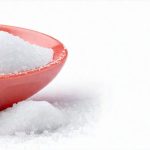The popularity of low-carbohydrate and ketogenic diets has spurred a significant increase in the availability – and consumption – of snack replacements designed to mimic favorite foods without the carbs. These products often utilize ingredients like fiber blends, sugar alcohols, and novel sweeteners to achieve a palatable experience while minimizing carbohydrate impact. While many individuals find these alternatives helpful for managing blood sugar or adhering to dietary restrictions, an emerging concern is their potential to trigger or exacerbate constipation in susceptible individuals. This isn’t necessarily a flaw of the snacks themselves, but rather a confluence of factors related to altered digestive processes when drastically reducing carbohydrates and substituting them with different compounds. Understanding why this happens requires delving into the mechanics of digestion and how these replacement ingredients interact within our gut.
The human digestive system is remarkably adaptable, but it thrives on consistency. Sudden shifts in diet, particularly eliminating a major food group like carbohydrates, can disrupt the delicate balance of gut bacteria, fiber intake, and intestinal motility. Carbohydrates play an important role beyond just providing energy; they contribute to stool bulk and feed beneficial gut microbes that aid digestion. When carbs are drastically reduced, the body often compensates by slowing down digestive processes, leading to decreased peristalsis – the wave-like muscle contractions that move food through the intestines. Replacing carbohydrates with large amounts of fiber or sugar alcohols, while seemingly healthy, can further complicate things if not managed correctly and can inadvertently contribute to digestive discomfort and constipation for some people. It’s crucial to recognize this potential side effect and proactively address it when adopting a low-carb lifestyle. If you suspect underlying issues are contributing, consider advanced scan layers for deeper insight.
The Role of Fiber & Sugar Alcohols in Constipation
Many no-carb snack replacements lean heavily on fiber blends – often including ingredients like chicory root, acacia fiber, or psyllium husk – to add bulk and texture without the carbohydrate load. While fiber is generally considered beneficial for digestive health, too much fiber, especially when not accompanied by sufficient water intake, can actually worsen constipation. These fibers are often poorly absorbed in the small intestine and reach the colon where they ferment. This fermentation process creates gas which can lead to bloating and discomfort. Furthermore, certain types of fiber (like insoluble fiber) don’t absorb water well, adding bulk without softening stool. The result can be hard, difficult-to-pass stools.
Sugar alcohols like erythritol, xylitol, sorbitol, and maltitol are frequently used as sweeteners in these products because they have minimal impact on blood sugar levels. However, the digestive system doesn’t process them effectively. Unlike regular sugars, many sugar alcohols aren’t fully absorbed in the small intestine. This means they draw water into the colon through osmosis, which can lead to diarrhea in some individuals but paradoxically, constipation in others – particularly if dehydration is present or if the individual isn’t accustomed to consuming large quantities of these compounds. The osmotic effect can also cause bloating and gas, adding to digestive discomfort.
It’s important to note that tolerance to sugar alcohols varies considerably from person to person. Some individuals can consume moderate amounts without issue, while others experience significant gastrointestinal distress even with small quantities. This variability is likely due to differences in gut microbiome composition and enzyme activity. The combination of high fiber content and poorly absorbed sugar alcohols in no-carb snacks can create a perfect storm for constipation, especially if fluid intake isn’t adequately increased. If you find yourself struggling with these issues frequently, it might be time to explore chronic constipation testing options.
Hydration & Gut Microbiome Impact
Adequate hydration is paramount when transitioning to a low-carbohydrate diet and consuming these snack replacements. As mentioned previously, many of the ingredients used – particularly fiber and sugar alcohols – draw water into the digestive tract. If you aren’t drinking enough fluids, this can lead to dehydration and hardened stools. The general recommendation of eight glasses of water per day might not be sufficient; individuals on low-carb diets often need to increase their fluid intake even further. This isn’t just about drinking plain water either – herbal teas, electrolyte-rich beverages (without added sugar), and watery vegetables can all contribute to hydration.
Beyond hydration, the shift to a no-carb or very-low-carb diet profoundly impacts the gut microbiome. Carbohydrates are the primary food source for many beneficial bacteria in the colon. When carbohydrate intake is severely restricted, these bacteria may decline, while populations of other microbes – some potentially harmful – can flourish. This imbalance, known as dysbiosis, can disrupt digestion and contribute to constipation. A healthy gut microbiome is crucial for maintaining regular bowel movements, fermenting fiber into short-chain fatty acids that nourish the colon cells, and regulating intestinal motility. Restricting carbohydrates too drastically or for extended periods could reduce microbial diversity and potentially exacerbate constipation issues. You may want to examine hidden gut issues if this is a concern for you.
Strategies for Mitigating Constipation
If you’re experiencing constipation after incorporating no-carb snack replacements, there are several steps you can take to alleviate symptoms and improve digestive function:
- Increase Fluid Intake: This is the most crucial step. Aim for at least eight glasses of water daily, and consider increasing it further if needed.
- Gradual Fiber Increase: Don’t drastically increase your fiber intake all at once. Start with small amounts and gradually increase as tolerated. Pay attention to how your body responds.
- Electrolyte Balance: Low-carb diets can lead to electrolyte imbalances (sodium, potassium, magnesium). Ensure you’re replenishing these electrolytes through diet or supplementation. Magnesium, in particular, is known for its laxative properties.
- Probiotic & Prebiotic Support: Consider incorporating probiotic-rich foods (yogurt, kefir, sauerkraut) or a probiotic supplement to support a healthy gut microbiome. Prebiotics – found in foods like garlic, onions, and asparagus (in moderate amounts if carbohydrate tolerance allows) – feed beneficial bacteria. Sometimes mild constipation can signal the need for more detailed testing.
Identifying Trigger Ingredients
Pinpointing the specific ingredient causing constipation can be challenging, but it’s worth attempting. Keep a food diary and track your bowel movements, noting any correlation between specific snack replacements and digestive symptoms. – Start by eliminating one potential trigger at a time (e.g., erythritol-sweetened snacks) and observe if your condition improves.
– Pay attention to the quantity of fiber you’re consuming from all sources – not just the snack replacements.
– Consider testing different brands or formulations of no-carb snacks, as ingredient lists can vary significantly. Some manufacturers may use more easily digestible fiber blends or smaller amounts of sugar alcohols. It’s also helpful to understand approaches to testing when constipation is intermittent.
When to Seek Professional Advice
While many cases of constipation are mild and manageable with lifestyle adjustments, it’s important to seek professional medical advice if: – Constipation is severe or persistent (lasting longer than two weeks).
– You experience accompanying symptoms such as abdominal pain, bloating, nausea, vomiting, rectal bleeding, or unexplained weight loss.
– Lifestyle changes don’t provide relief. A healthcare provider can rule out underlying medical conditions and recommend appropriate treatment options. They may also suggest a consultation with a registered dietitian to develop a personalized dietary plan that minimizes digestive discomfort while supporting your health goals. Remember, the goal isn’t necessarily to eliminate no-carb snacks entirely, but rather to find a way to incorporate them into your diet without compromising your digestive health. If insurance coverage is a concern, explore tests covered by insurance. Consider exploring bloat-free food combinations to further optimize your diet.


















